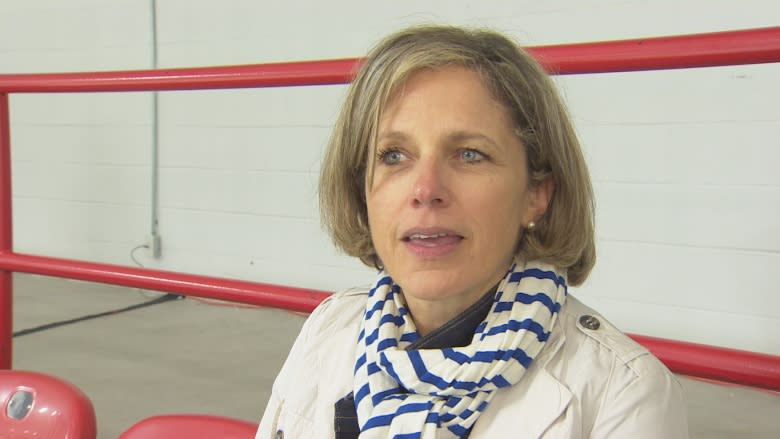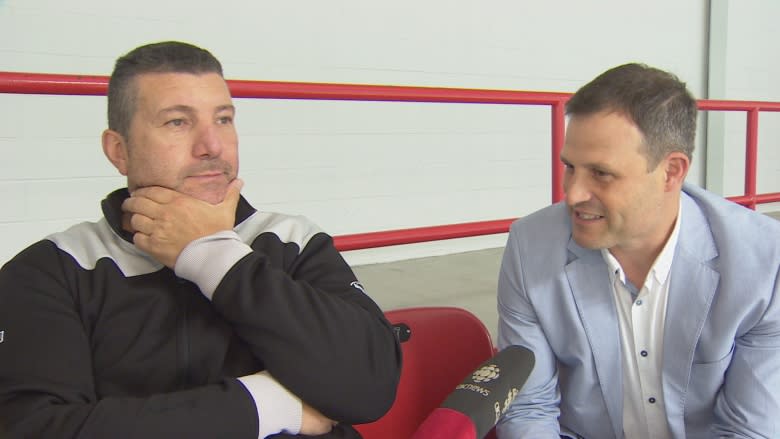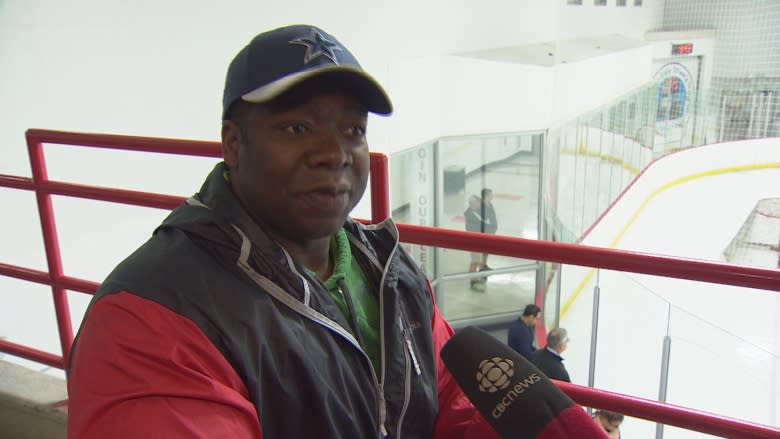Toronto hockey parents not confident online course will bring civility to the stands
A new mandatory course for Ontario parents with kids in hockey may be aimed at bringing civility into the stands, but few believe it will change things.
The course, called Respect in Sport, is an online one-hour session that is mandatory for all parents looking to register their kids in a league. If the parents don't do their homework, the kids can't skate.
But parents of kids in a Greater Toronto Hockey League (GTHL) midget tournament said Friday that much of what they learned was common sense, and will do little to root out the bad apples that give hockey moms and dads a bad rap.
Toshia Wagner responded with a blunt, "no, not at all," when asked if the course will change parents who have a history of bad behaviour.
"Anybody can take the course. You know what you're supposed to say," she told CBC News.
"When they get to the arena and watching a game and they get all fired up again, they're not going to be thinking at the back of their mind, 'oh, what am I supposed to do in this scenario?' No. It's impulse."
Sophie Gaudreault said she thinks the course is "one way of dealing with" parents who fight in the stands or yell at referees or coaches.
She said she's seen a lot of bad behaviour, and has seen referees stop games until offending parents leave the arena.
"Personally, I don't think it's going to change their behaviour," she said. "It may help, it may make people aware of what's going on. It's a first step. But people [who are] doing those kinds of things, a course online is not going to change it."
While similar courses have been implemented in other provinces, this is the first year for Ontario. The course costs $12, and covers a variety of topics including perspective, balance, avoiding burnout, making it to "the bigs" and using guilt on your child.
'It's not about you'
Luciano Cugini described the course as a "refresher" on what parents should know before they go to the rink, but thinks the lessons apply to parents with children in any organized sport.
"It's something that didn't necessarily enlighten me as far as the way we should be treating things, but it definitely put any sport into perspective," Cugini said.
"It allowed us to reflect, if nothing else."
He said most parents see the value in the course, but it was clear that some did not, given that some kids weren't on the ice at the start of the season, Cugini said.
But if initiatives like the course continue, he said, they may help create a larger society-wide change.
"When I grew up we didn't wear seatbelts and now I don't get into a car without putting one on," Cugini said.
"Like anything it takes time, there's a little bit of resistance, and then hopefully people adapt and start to understand that those videos, those rules and those things we should be doing that are common sense will actually start happening in the stands."
Mark Fantauzzi said it may have one positive effect.
"Maybe some parents will stand up and remind other parents of their behaviour," he said.
Sam Ansah said he liked the course and recommends it for parents. But he thinks parents need to have perspective on their child's hockey prospects.
"I think it's a great idea. Every once in a while you see parents going crazy and they don't understand it's a kids' game," he said.
"It's not about you."





